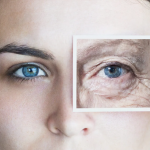In the realm of skincare, the combination of Vitamin C and Niacinamide has emerged as a potent alliance for achieving vibrant, radiant skin. Beyond their topical applications, these powerhouse ingredients play essential roles within the body, influencing overall health and wellness.
Effects on the Skin:
Vitamin C, renowned for its antioxidant properties, is a key player in skin health. This essential nutrient works to brighten the complexion, diminish hyperpigmentation, and stimulate collagen production. Its role extends beyond the surface, offering protection against free radicals and environmental stressors, contributing to a youthful and glowing skin.
Niacinamide, or Vitamin B3, complements Vitamin C with its versatile benefits. It acts as an anti-inflammatory agent, reducing redness, minimizing the appearance of pores, and regulating oil production. The result is a smoother, more resilient complexion that stands as a testament to Niacinamide’s multifaceted contributions.
Effects in the Body:
Vitamin C, integral to the body’s functions, supports the immune system, aids in wound healing, and enhances the absorption of non-heme iron from plant-based foods. Its contribution to collagen synthesis is not only crucial for skin elasticity but also impacts overall tissue repair and health.
Niacinamide, on the other hand, participates in vital physiological processes. It supports energy metabolism, facilitates proper nervous system functioning, and plays a role in DNA repair and cell signaling. Additionally, Niacinamide contributes to the synthesis of fatty acids and cholesterol, ensuring a holistic impact on bodily functions.
Natural Sources:
To reap the benefits of these essential nutrients, incorporating natural sources into one’s diet is paramount. Vitamin C-rich foods include citrus fruits (oranges, lemons, grapefruits), strawberries, kiwi, bell peppers, and broccoli. Niacinamide can be obtained from a variety of sources, such as meat, fish, nuts, mushrooms, and green vegetables.
Proper Intake:
While there is no specific Recommended Dietary Allowance (RDA) for Niacinamide, the Recommended Dietary Allowance for niacin (which includes niacinamide) ranges from 14 mg to 16 mg per day for adults, depending on age and gender. For Vitamin C, the RDA varies but generally ranges from 40 mg to 120 mg per day. Individual dietary needs can be met through a well-balanced and diverse diet.
Conclusion: Nourishing Your Skin from Within
Incorporating Vitamin C and Niacinamide into both your skincare routine and diet is a holistic approach to achieving healthy, glowing skin. Understanding their effects on the skin and within the body allows for a comprehensive and informed approach to skincare. Whether applied topically or consumed through a nutrient-rich diet, the dynamic duo of Vitamin C and Niacinamide stands as a testament to the powerful synergy between skincare and overall well-being. Remember to consult with healthcare professionals for personalized advice tailored to your specific needs, ensuring a balanced and nourishing approach to beauty and health.










